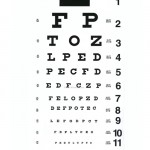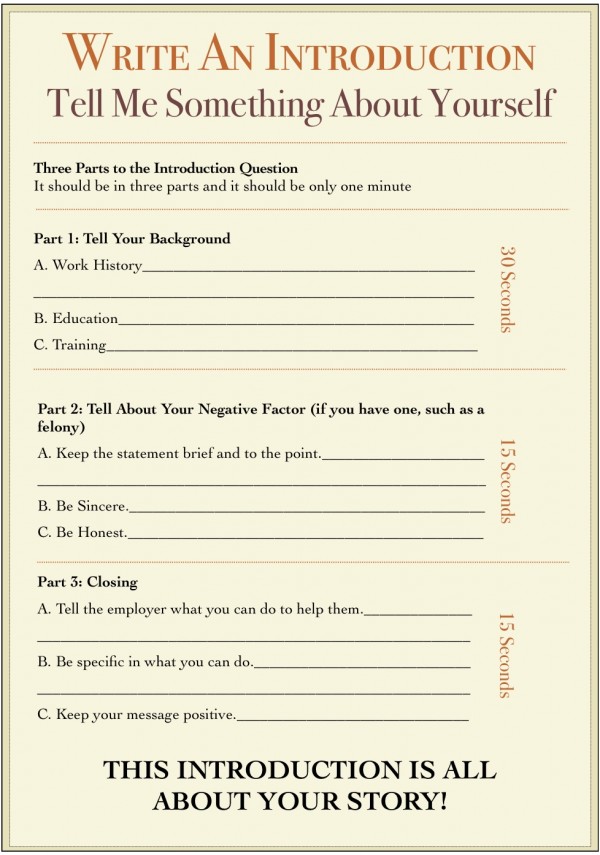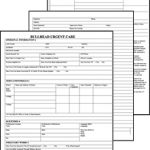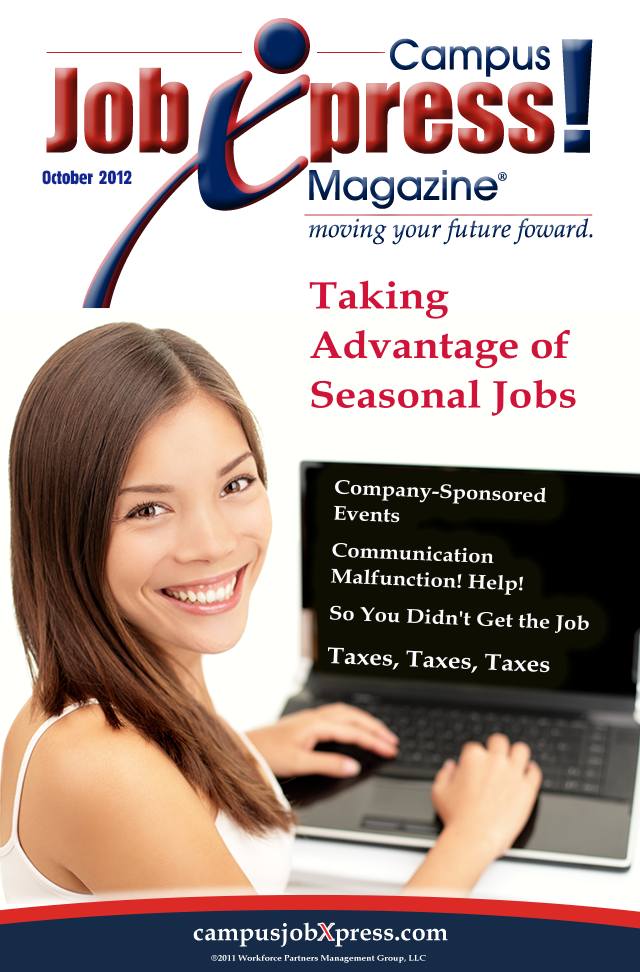
by cjxpadmin | Oct 30, 2012 | Job Readiness, November 2012 Magazine
by Yolanda L Salazar
The City of Waco is one of the top ten employers in the Waco, Texas area. If you secure employment with this employer, you are one of the fortunate ones. Earlier this year, we published an article entitled “Do You Want To Work For the City of Waco?” In this article, we discussed how to fill out an application, the conditions of employment and how to apply for City jobs.
This article consists of everything you want to know once you get employed with the City of Waco. Read on.
Full-Time Employment Benefits:
Standard Benefits
Employee Assistance Program: This benefit is provided by the City of Waco at no cost to employees. Up to six counseling sessions are available (per employee and each dependent) per issue. Horizon Health EAP Services provides this benefit.
The EAP provides additional services beyond short-term counseling including crisis intervention, on-line resources, and preparation of a simple will to name a few. The City wants to ensure employees remain healthy and productive in the workplace while maintaining a balance between work and home life.
Advantages of using the EAP: The service costs the employee nothing; it is high quality and professional, easy to access, confidential, available for employees and their families, and offers practical solutions for employees’ unique issues.
Bilingual Pay
The Bilingual Pay Program compensates employees whose position may require the use of Spanish  bilingual skills. Each department is allotted a maximum number of positions that are eligible to receive bilingual pay.
bilingual skills. Each department is allotted a maximum number of positions that are eligible to receive bilingual pay.
Health Insurance
Health insurance is effective the first day of employment for employees and dependents who enroll. The City’s health plan year runs October 1st through September 30th. Employees may elect not to enroll in the City’s health plan. The City offers one health and prescription insurance plan, administered by Blue Cross Blue Shield of Texas (BCBS) and prescription services provided through Prime Therapeutics. Locally, employees have access to Hillcrest and Providence Hospitals located in Waco and Scott & White Hospital located in Temple.
Holidays
The City observes nine paid holidays each year for full-time employees. Holidays which fall on a Saturday will be observed on the preceding Friday; holidays which fall on a Sunday will be observed on the following Monday. Employees scheduled to work on a holiday may be given another day off or may be paid for the holiday.
- New Year’s Day
- Martin Luther King Day
- Spring Holiday
- Memorial Day
- July 4th
- Labor Day
- Thanksgiving Day
- Friday after Thanksgiving
- Christmas Eve
- Christmas Day
Leave for Jury Duty
Employees required to report for jury duty will receive their regular pay during the time they serve, on a regularly scheduled workday. The employee must present proper documentation to his immediate supervisor upon receipt of the notification to report for jury duty.
Life Insurance & Accidental Death Insurance
 The City provides Basic Term Life and Accidental Death & Dismemberment insurance at no cost to the employee, which becomes effective on the first day of employment. An employee is automatically enrolled for an amount equal to one times his base annual earnings to a maximum of $50,000. An employee may purchase supplemental life insurance and life insurance for his family. Life insurance and accidental death insurance are offered through Prudential Insurance Company of America.
The City provides Basic Term Life and Accidental Death & Dismemberment insurance at no cost to the employee, which becomes effective on the first day of employment. An employee is automatically enrolled for an amount equal to one times his base annual earnings to a maximum of $50,000. An employee may purchase supplemental life insurance and life insurance for his family. Life insurance and accidental death insurance are offered through Prudential Insurance Company of America.
Longevity Pay
Employees must have 5 full years of continuous service as a full-time regular employee as of November 1st  each year to be eligible for longevity pay. Longevity pay is paid each December at $4 per month for each year of service with a maximum of 25 years. Civil Service employees receive longevity pay at a rate of $4 per month after one year of service up to a maximum of 25 years, which is paid bi-weekly.
each year to be eligible for longevity pay. Longevity pay is paid each December at $4 per month for each year of service with a maximum of 25 years. Civil Service employees receive longevity pay at a rate of $4 per month after one year of service up to a maximum of 25 years, which is paid bi-weekly.
Long-Term Disability
 This program may pay an employee up to 50% of his/her salary after being disabled by an injury or illness. The coverage begins on the 181st day after an injury or illness and may continue to age 70. The benefits of this plan may be coordinated with other income the employee may be receiving. An employee is automatically enrolled at no cost to the employee. This benefit is provided through Prudential Insurance Company of America.
This program may pay an employee up to 50% of his/her salary after being disabled by an injury or illness. The coverage begins on the 181st day after an injury or illness and may continue to age 70. The benefits of this plan may be coordinated with other income the employee may be receiving. An employee is automatically enrolled at no cost to the employee. This benefit is provided through Prudential Insurance Company of America.
Military Leave
 Employees who are members of a reserve component of the U.S. Armed Forces or National Guard are entitled to military leave with pay for 15 days per year. For longer periods of military duty, the City adheres to the Uniformed Services Employment and Reemployment Rights Act (USERRA) Guidelines.
Employees who are members of a reserve component of the U.S. Armed Forces or National Guard are entitled to military leave with pay for 15 days per year. For longer periods of military duty, the City adheres to the Uniformed Services Employment and Reemployment Rights Act (USERRA) Guidelines.
Paydays
Employees are paid every two weeks for a total of 26 paydays per year.
Post Retirement Benefits
Life insurance in the amount of $2,500 is provided at no cost to each qualified retiree. An optional $5,000 in life insurance is available at the retiree’s expense. Retired employees may keep medical coverage as long as they continue to pay the health premium; however, the decision to continue medical coverage must be made upon retirement.
Retirement Plan
 Employees scheduled to work a minimum of 1000 hours per calendar year are members of the Texas Municipal Retirement System (TMRS). An employee contributes 7% of his/her gross pay, and the City contributes 14% of the employee’s gross pay to the employee’s fund. Qualified employees may retire at age 60 with at least five years of service credit with TMRS or have 20 years of service credit with TMRS, regardless of age.
Employees scheduled to work a minimum of 1000 hours per calendar year are members of the Texas Municipal Retirement System (TMRS). An employee contributes 7% of his/her gross pay, and the City contributes 14% of the employee’s gross pay to the employee’s fund. Qualified employees may retire at age 60 with at least five years of service credit with TMRS or have 20 years of service credit with TMRS, regardless of age.
School Conference Policy
Employees with school-aged children may be granted one and one-half hour with pay per child per semester for school conferences, provided supervisory approval has been granted.
Sick Leave
Employees accrue sick leave with pay at a rate of one workday for each month employed. Sick leave may be accumulated without limit and carried forward from year to year. An employee who separates from the City after five years of continuous service is paid for accumulated sick leave, not to exceed 90 days.
Civil Service Employees are allowed sick leave with pay, accumulated at the rate of 1.25 full working days for each month employed in a calendar year, so as to total fifteen working days to an employee’s credit each twelve months.
Social Security
The City participates in Social Security.
Vacation
Employees earn vacation leave at a rate of 13 workdays per year. After five years of consecutive employment, full-time employees earn 18 vacation days per year. After 20 years of consecutive employment, full-time employees earn 20 vacation days per year.
Civil Service Employees are entitled to earn a minimum of fifteen working days vacation leave with pay each year. A maximum of 20 days can be carried over to the next calendar year for all employees. An employee  who separates from employment with the City is allowed a maximum of 20 accrued vacation days to be paid out.
who separates from employment with the City is allowed a maximum of 20 accrued vacation days to be paid out.
Worker’s Compensation
The City provides Workers’ Compensation insurance or equivalent benefits to employees for job-related injuries and occupational illnesses.
Optional Benefits
Deferred Compensation Plans
Participation in Deferred Compensation is available for employees who want to save additional money for retirement and not pay taxes on the money until it is withdrawn at retirement. The City offers three deferred compensation plans: Metlife, ICMA, and Nationwide.
Dental Plans
The City offers voluntary dental plans. Quality Care Dental (QCD) of America provides a dental/vision  discount plan that employees may choose to enroll in at no cost to the employee; employees may choose dependent coverage at the employee’s cost. Cigna Dental provides indemnity dental insurance that employees may choose to enroll in at the employee’s cost.
discount plan that employees may choose to enroll in at no cost to the employee; employees may choose dependent coverage at the employee’s cost. Cigna Dental provides indemnity dental insurance that employees may choose to enroll in at the employee’s cost.
Cafeteria Plans
The Section 125 Cafeteria Plan allows employees to use pre-tax dollars to pay for eligible expenses, which allows employees to reduce income taxes and increase take-home pay. The plan includes: health, vision, and dental premium sheltering, healthcare flexible spending account, and dependent care flexible spending account. PayFlex Systems USA, Inc. administers the City’s flexible spending accounts.
Savings Bonds
Employees may elect to have payroll deductions to purchase savings bonds.
Short-Term Disability
Employees may choose to enroll in this benefit at the employee’s expense. This benefit begins on the 15th day following a non-occupational accidental injury or non-occupational sickness, and it pays up to 70% of an employee’s weekly earnings, up to a maximum of $350, less deductible sources of income. The minimum weekly benefit is $25. The maximum period of payments is 26 weeks. This benefit is provided through Prudential Insurance Company of America.
 Vision Plan
Vision Plan
The City offers a voluntary vision plan through Superior Vision. Employees may choose to enroll in this plan at the employee’s cost.
Waco Federal Credit Union
City of Waco employees can join the Waco Federal Credit Union.

I hope this helps out in understanding the full benefits offered by the City of Waco. Please check out the City’s website, www.waco-texas.com, for any further questions or information. Δ

by cjxpadmin | Oct 30, 2012 | Job Readiness, November 2012 Magazine
by Sheena Williams
There are times in our lives where we have made some bad choices, or some bad choices were made around us, and we find ourselves unable to find work due to the fact that we have a rap sheet. It can be difficult to find employment because the hiring process is all about trust. The employer trusts that you will do your job competently. The employer trusts that when they leave you alone, their profit- making materials will be safe with you. When you have a rap sheet, it’s like a red flag to them which could be a deciding factor in whether they hire you or not. Your job, while doing your job to find a job, is to let employers know that they can trust you.
Find Out Exactly What Your Record Is Showing. Do yourself a favor and see what the employer would see on your  background check sheet. Don’t let there be any surprises for your or the employer. You may be revealing to the person interviewing you some things that were never even on your background check. You may be allowing guilt or anger to paint a picture of you that no one is trying to see. By being upfront, it definitely shows that you can be trusted. It is all about the conversation you have with the employer.
background check sheet. Don’t let there be any surprises for your or the employer. You may be revealing to the person interviewing you some things that were never even on your background check. You may be allowing guilt or anger to paint a picture of you that no one is trying to see. By being upfront, it definitely shows that you can be trusted. It is all about the conversation you have with the employer.
 Support Group. There are going to be some really low days while you are looking for work. There are going to be times when you feel as if no one is listening to you, that no one believes you, and that you just can’t move any further. That is a wrong perception to have when you are looking for a job. There are support groups all over the place to help you talk out all your frustrations. Talk to your family or seek counseling. Just stay away from negative influences and hold on to your positive thoughts. Things will get better and you will find an employer who is willing to take a chance on you.
Support Group. There are going to be some really low days while you are looking for work. There are going to be times when you feel as if no one is listening to you, that no one believes you, and that you just can’t move any further. That is a wrong perception to have when you are looking for a job. There are support groups all over the place to help you talk out all your frustrations. Talk to your family or seek counseling. Just stay away from negative influences and hold on to your positive thoughts. Things will get better and you will find an employer who is willing to take a chance on you.
Probation Officer Assistance. Inform your probation officer about any trouble you may be having with your job  search endeavors. They may be able to direct you to your local workforce center or they may know of some employers who are less likely to have any bias regarding workers with records. They may also be aware of programs that could help you get back on your feet.
search endeavors. They may be able to direct you to your local workforce center or they may know of some employers who are less likely to have any bias regarding workers with records. They may also be aware of programs that could help you get back on your feet.
How To Tell Your Story. There are certain ways to tell your story when it comes to explaining your background. Keep your story short and simple. Do not elaborate. State your facts clear and concise. As you will see from the chart on the following page, use one minute to tell your story – one minute! Use the first 30 seconds to talk about your work history, education, etc. Take the next 15 seconds to tell about your negative factors and then use the last 15 seconds to close our your introduction.
If you have the capability to print the following page, please print it and fill it out. Practice your statements so that you provide only information that is needed. Time yourself so that you stay within the allowed timeframes. Prepare a strong closing statement by providing the interviewer with what you can do for them and as the chart says, be very specific and positive.

Start Off Small. Perhaps, prior to your troubles, you were in a position where you were in charge or handled the  day-to-day operations of a company or organization or perhaps an office. However, your background makes it difficult to find a job that is willing to allow you the same job responsibilities that you previously held. There is nothing wrong with taking an entry level position to work your way back up. Once again, the hiring process is all about trust. When you can prove to your employers that they can trust you, you are a step ahead of the process. Plus taking a less responsible position could buy you time to look for the job that you truly want, or perhaps allows you time to think about starting up your own business.
day-to-day operations of a company or organization or perhaps an office. However, your background makes it difficult to find a job that is willing to allow you the same job responsibilities that you previously held. There is nothing wrong with taking an entry level position to work your way back up. Once again, the hiring process is all about trust. When you can prove to your employers that they can trust you, you are a step ahead of the process. Plus taking a less responsible position could buy you time to look for the job that you truly want, or perhaps allows you time to think about starting up your own business.
 Don’t Give Up. There are going to be days when you just want to throw in the towel and do something rash. Don’t do it! You may be facing times when you are so frustrated that you could end up making the wrong choices. Stop that! There is nothing wrong with feeling how you feel, but always take a deep breath and know that things will get better. You have your freedom and you are now working on getting yourself back on track to a new and better life. Relax, know that you will find what you are looking for eventually. You just have to stay positive and keep moving ahead! Δ
Don’t Give Up. There are going to be days when you just want to throw in the towel and do something rash. Don’t do it! You may be facing times when you are so frustrated that you could end up making the wrong choices. Stop that! There is nothing wrong with feeling how you feel, but always take a deep breath and know that things will get better. You have your freedom and you are now working on getting yourself back on track to a new and better life. Relax, know that you will find what you are looking for eventually. You just have to stay positive and keep moving ahead! Δ

by cjxpadmin | Oct 30, 2012 | Job Readiness, November 2012 Magazine
by Erica Mitchell-Breedlove
In my Human Resources (HR) profession, I review anywhere from 80 – 1,500 employment applications on a weekly basis. Most applications are accompanied by additional precious employment documents, i.e. resumes, cover letter, vitas. It is when I actually have the opportunity to speak to interested candidates where an applicant’s “Blind Opponent” reveals itself in one of our mini visitations; thereby, making our meeting of two a threesome.
basis. Most applications are accompanied by additional precious employment documents, i.e. resumes, cover letter, vitas. It is when I actually have the opportunity to speak to interested candidates where an applicant’s “Blind Opponent” reveals itself in one of our mini visitations; thereby, making our meeting of two a threesome.
You see, it is during such visits where an applicant breathlessly initiates a well-practiced pitch to describe their endless employment experience, number of awards received and degrees earned while also preparing for their conversation finale to push 2 or 3 versions of well tailored resumes and exclaim, “Do you have a job for me?” The applicant has good intentions to get the attention of the employer by distinguishing themselves from all others and closing on the sale to get a job, any job, just a job! However, the employer is distracted by the presence of the Blind Opponent, the applicant!
For this Blind Opponent cannot see the viewpoint of an employer, they can only see their purpose. The Blind Opponent  appears desperate, tunnel-visioned and sometimes pushy for they are blind to the employer’s applicant processes, availability of jobs and they, most often, lack the knowledge of who the hiring decision-makers are within an organization. Current and future job opportunities are often talked away and, in most cases, right out of an applicant’s reach because the applicant replaces themselves with their Blind Opponent to speak on their behalf without first asking questions and listening to the employer.
appears desperate, tunnel-visioned and sometimes pushy for they are blind to the employer’s applicant processes, availability of jobs and they, most often, lack the knowledge of who the hiring decision-makers are within an organization. Current and future job opportunities are often talked away and, in most cases, right out of an applicant’s reach because the applicant replaces themselves with their Blind Opponent to speak on their behalf without first asking questions and listening to the employer.
Avoid letting others such as a Blind Opponent speak on your behalf. Re-position your thought process and ask yourself, “What does the employer seek in an ideal candidate?” as opposed to assuming they want whatever you present. Attempt to create opportunities to do the following:
① Secure a 10-Minute Meet-n-Greet Informational Meeting/Interview
To accomplish this task, ask for a 10-minute meet and greet informational meeting/interview. This can be accomplished in person or by phone. Let the employer know that you just want to gather a little more information about their employment processes. Employers feel more comfortable about speaking to applicants outside of their regular processes when they are made aware of the purpose of the meeting and the amount of time you are requesting; therefore, be courteous of their schedule by staying within the requested timeframe when you land such a meeting. Remember, ten minutes!
② Learn Something New
 Prepare in advance two open-ended questions that will provide you with information that you previously did not know about the organization’s employment processes, or about the organization itself. It can be helpful to understand who is responsible for reviewing applications, making hiring decisions and if their organization utilizes hiring timelines. Avoid asking closed-ended yes/no questions.
Prepare in advance two open-ended questions that will provide you with information that you previously did not know about the organization’s employment processes, or about the organization itself. It can be helpful to understand who is responsible for reviewing applications, making hiring decisions and if their organization utilizes hiring timelines. Avoid asking closed-ended yes/no questions.
③ Get the Attention of the Employer
 To gain positive attention, give the employer 80% talk time. The applicant should take no more than 20% talk time in an employer meet-n-greet informational meeting/interview. This percentage time would be reversed if it were an actual interview; however, this is just an initial meet-n-greet meeting. Employers are pleased whenever they find applicants who take an avid interest in their organization. When applicants approach employers about meetings to discuss specific job openings, employers typically become hesitant for they don’t want to be accused of disproportionately providing information to applicants amongst an applicant pool. So when asked about job openings, the employer will most likely begin rehearsing their commonly used response as to how the applicant may navigate through their website to get additional information. However, most employers love to share how they landed their jobs and how they recruit their best employees. Don’t assume you will get a job with an initial meet-n-greet meeting. Your goal is to gain a positive memorable experience.
To gain positive attention, give the employer 80% talk time. The applicant should take no more than 20% talk time in an employer meet-n-greet informational meeting/interview. This percentage time would be reversed if it were an actual interview; however, this is just an initial meet-n-greet meeting. Employers are pleased whenever they find applicants who take an avid interest in their organization. When applicants approach employers about meetings to discuss specific job openings, employers typically become hesitant for they don’t want to be accused of disproportionately providing information to applicants amongst an applicant pool. So when asked about job openings, the employer will most likely begin rehearsing their commonly used response as to how the applicant may navigate through their website to get additional information. However, most employers love to share how they landed their jobs and how they recruit their best employees. Don’t assume you will get a job with an initial meet-n-greet meeting. Your goal is to gain a positive memorable experience.
④ Apply What You Learn
Apply what you have learned, thus far, from what the employer has communicated with you during the meeting and  utilize whatever time you have remaining (of your 20% talk time) to pitch your valuable work experience. Employers are very impressed when it appears you have listened to them. Even when an employer gives information that does not sound promising, stay positive and close the meeting with presenting your resume and a quick pitch about your work experience that summarizes why you are a viable candidate. Be organized and very clear in your speech. Provide eye contact and don’t forget to smile.
utilize whatever time you have remaining (of your 20% talk time) to pitch your valuable work experience. Employers are very impressed when it appears you have listened to them. Even when an employer gives information that does not sound promising, stay positive and close the meeting with presenting your resume and a quick pitch about your work experience that summarizes why you are a viable candidate. Be organized and very clear in your speech. Provide eye contact and don’t forget to smile.
Good Luck! Δ



























